| Year-round Resident |
| Infrequently Seen |
Spring: Field Sparrows are common year-round residents in the Washington metro area. A few pass through Monticello Park, usually around the end of April.
Fall: Only a couple of Field Sparrows have ever been seen at Monticello during fall migration.
Where to See Them in the Park
Field Sparrows prefer brushy fields, and Monticello does not contain such habitat.
Physical Description
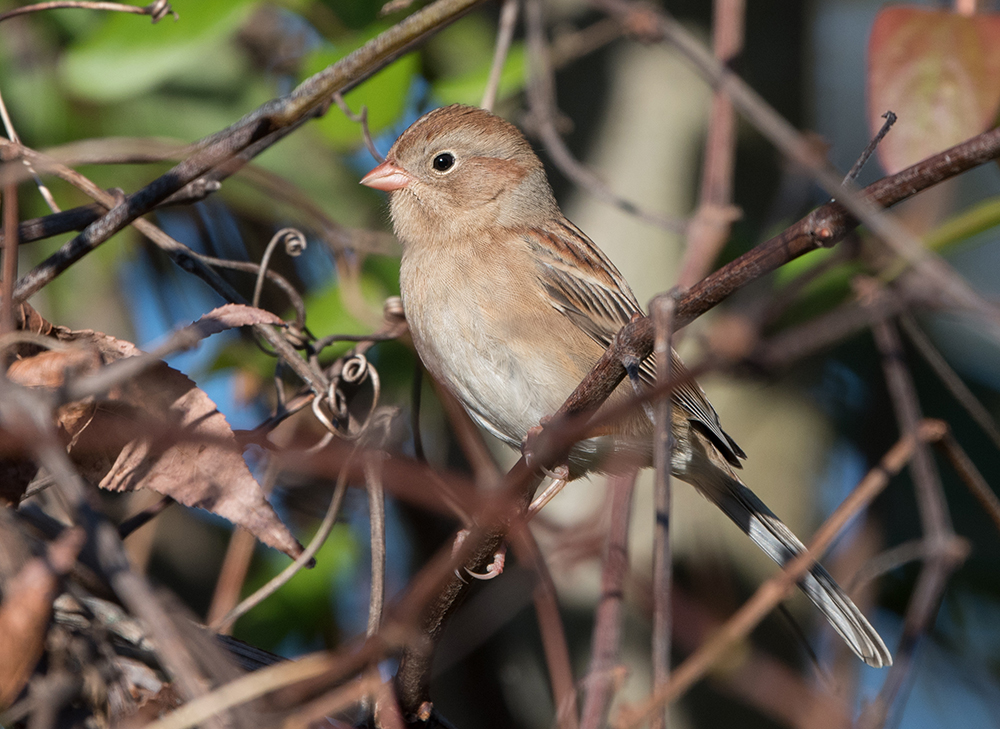
Field Sparrows have a rufous crown and cheek, a gray line over the eye, and a white eyering. The most prominent fieldmark is the short pink bill. The breast is unmarked, but there can be a rufous wash on the flanks. The sexes are similar.
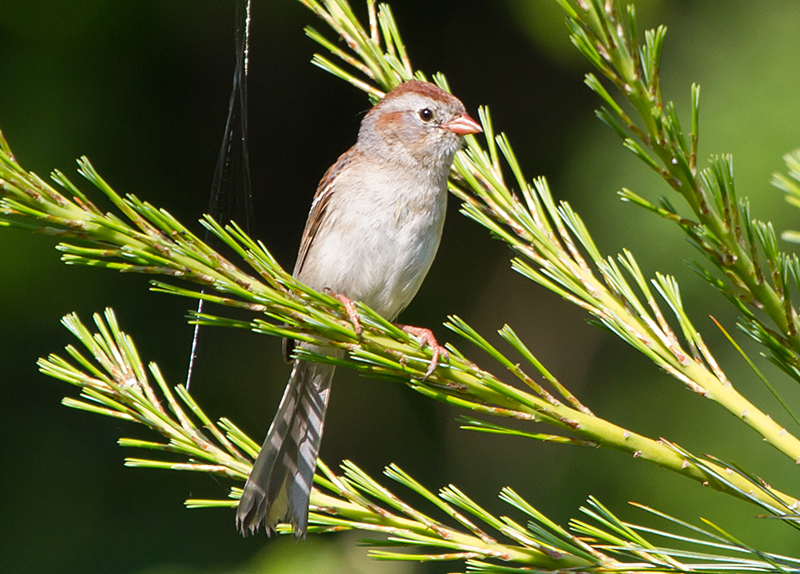
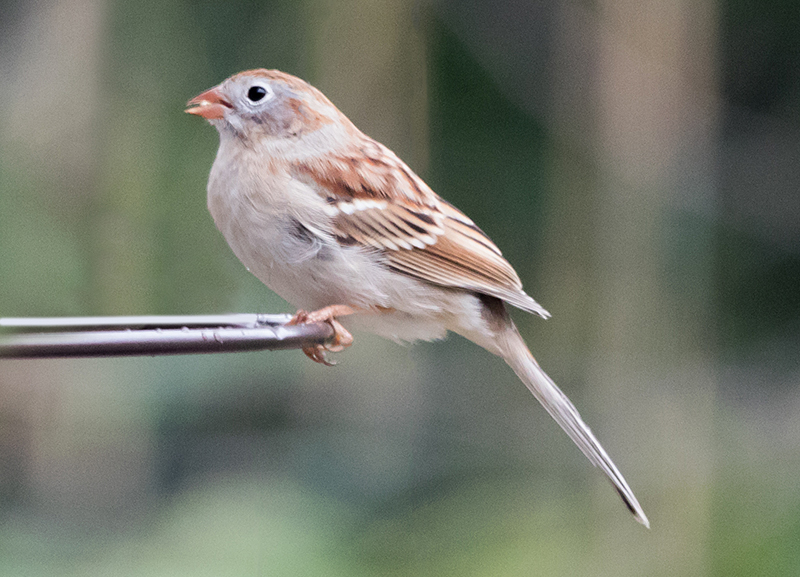
Field Sparrows look small and pert when perched or foraging on the ground. When in mixed flocks, they typically are lower in the pecking order than larger birds, such as White-throated and Song Sparrows.
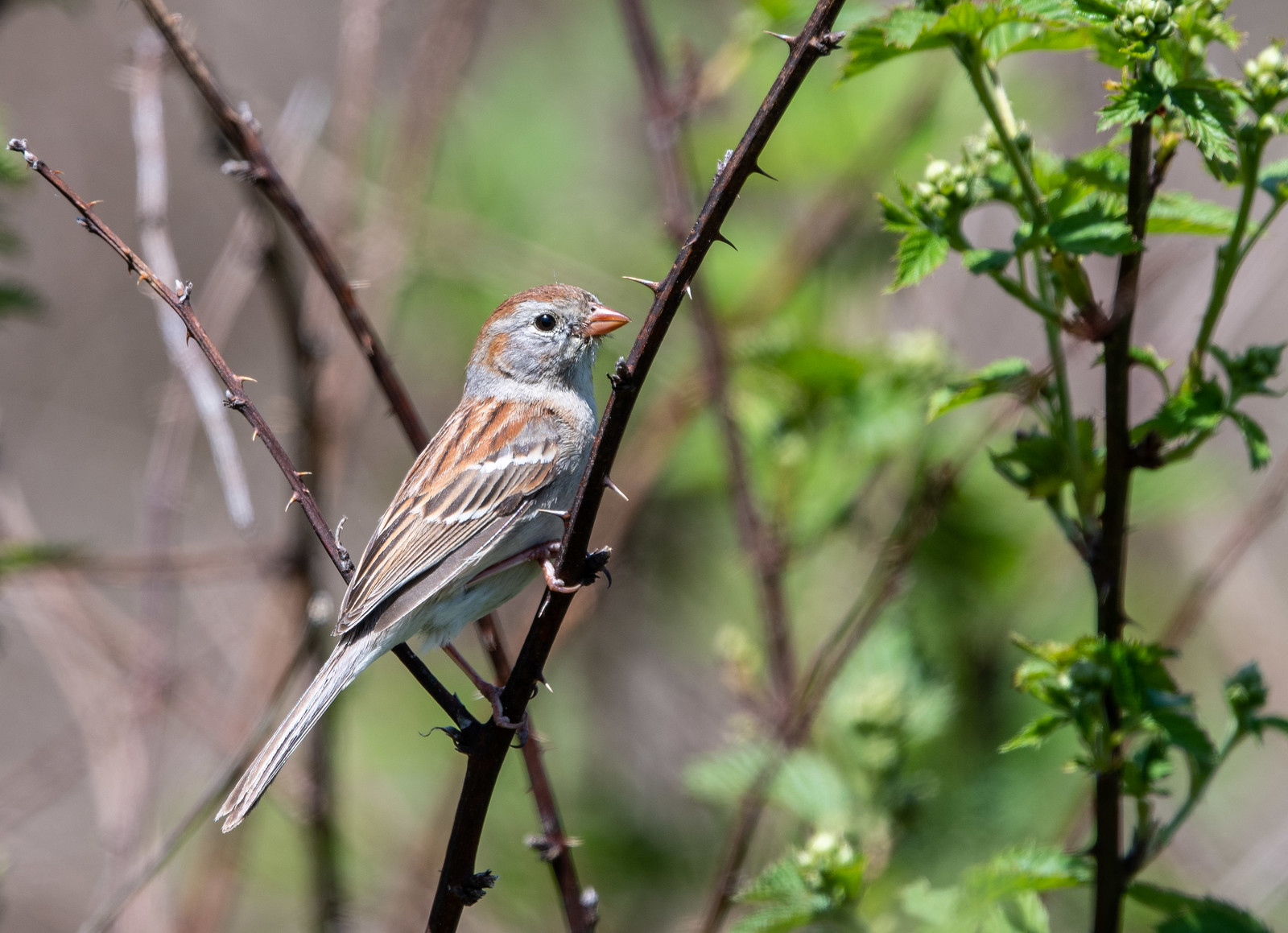
Western populations of Field Sparrows look grayer, but the short pink bill is still a key fieldmark. There are many intermediate variations between gray birds and rufous ones.
Vocalizations
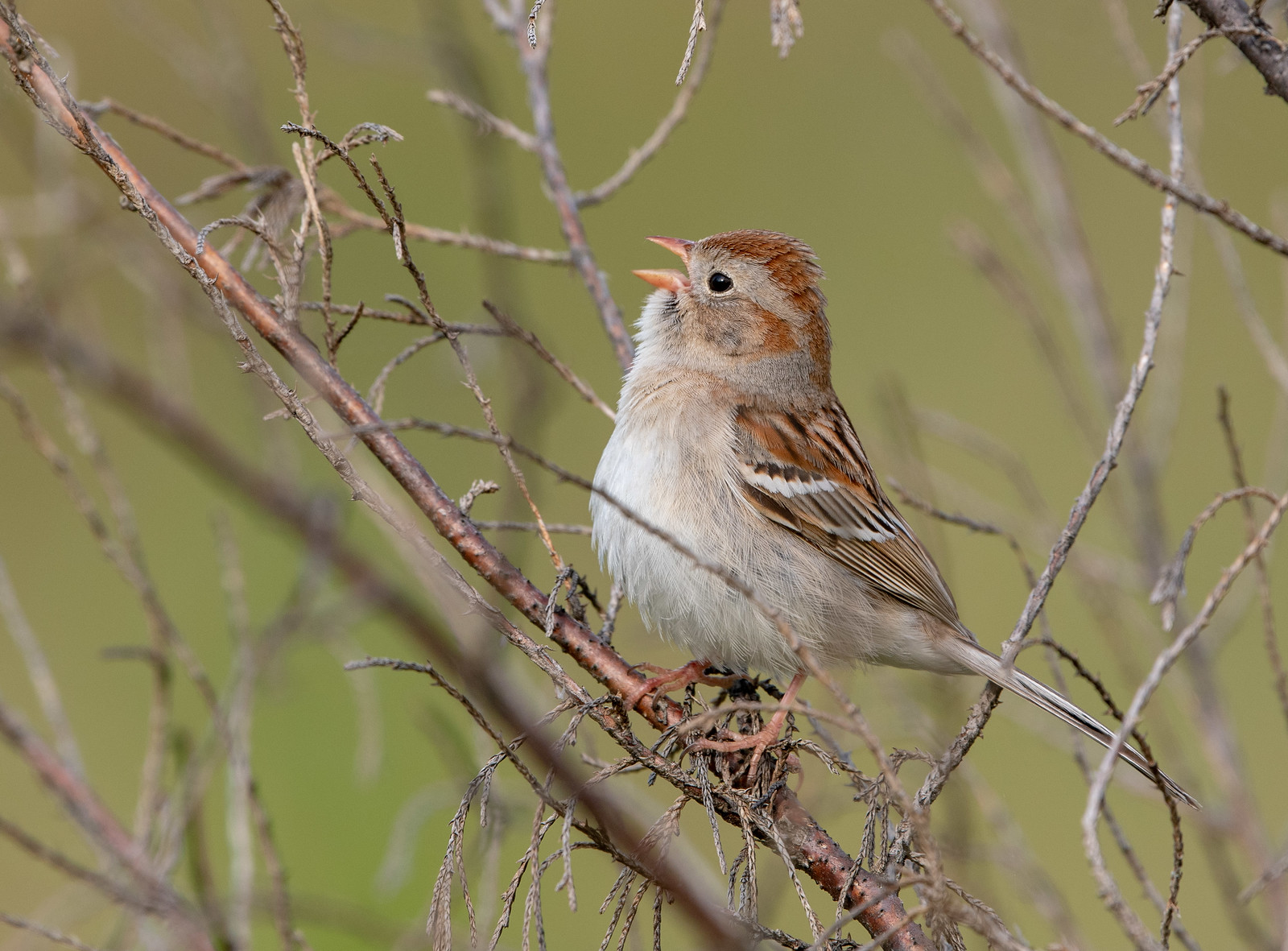
The song of the Field Sparrow features a few long notes that end in a trill.
Hear the vocalizations of the Field Sparrow.Notes
Birders use various aids to remember birdsong. Some aids represent the song in words or attempt to spell what the song sounds like. Other aids use analogies with familiar sounds. One of the Pine Siskin's calls sounds like a phonograph needle being dragged across a record (for those who remember phonograph records). The song of the Black-and-white Warbler has been likened to a squeaky wheel. The sound and rhythm of the Field Sparrow's song has been compared to a ping pong ball bouncing on a table.
Origin of Names
Common Names: Field from their preferred habitat. Sparrow from the Anglo-Saxon spearwa, which means flutterer.
Genus Name: Spizella means finch.
Species Name: Pusilla means smallest. Field Sparrows are small, but other sparrows in the genus are smaller.
Field Sparrow video footage
Return to the Index
